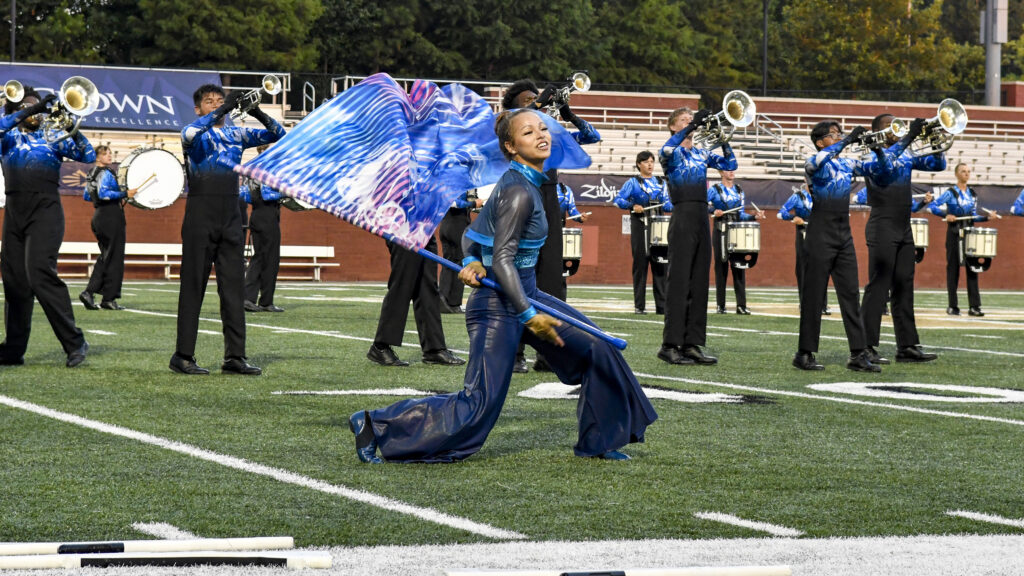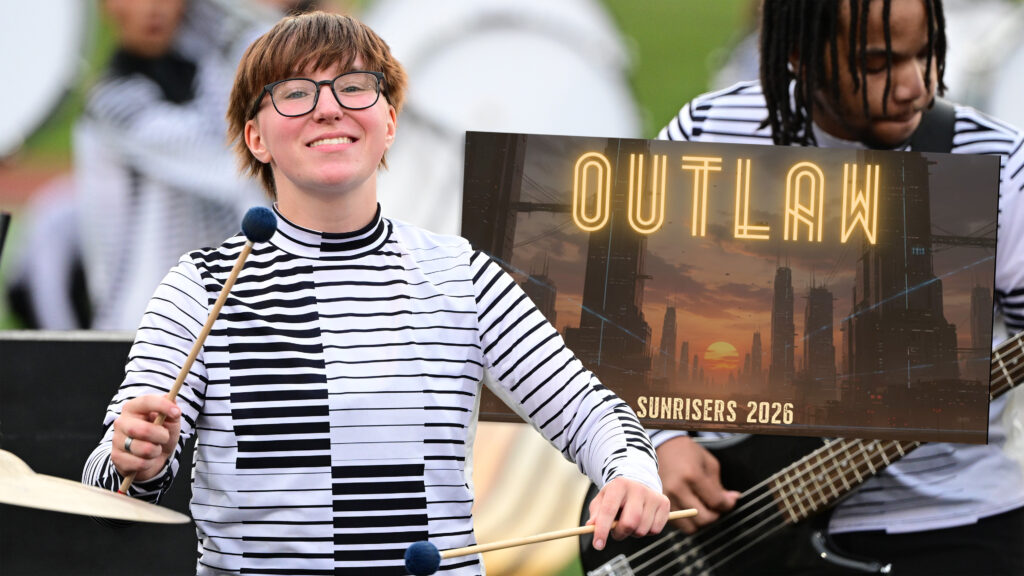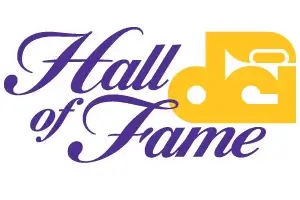
Since 1985, the Drum Corps International Hall of Fame has honored individuals who have left their mark on the drum corps activity. From instructors to designers to innovators, administrators and others, today’s Hall is made up of more than 100 men and women influential in the history of drum and bugle corps. Each winter, members of the DCI community participate in a nomination process, informing DCI’s Hall of Fame Committee of those whom they feel should be recognized as part of drum corps’ legacy. In April, current Hall of Fame members and corps directors participate in an election process to decide who will join the ranks of this prestigious society. Five individuals have been selected for induction as the DCI Hall of Fame Class of 2012. They will be recognized during the week of the 2012 DCI World Championships in Indianapolis.
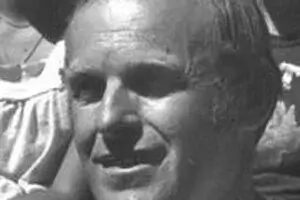
George Bevilacqua
George Bevilacqua Boston Crusaders Director 1971-1980 Joining the Boston Crusaders management team in the early 1970s, George Bevilacqua led the East Coast group through a crossroads in the organization’s history. Bevilacqua was a champion for corps controlling their own destinies and helped to form Drum Corps International, when he and 12 other directors from around the country looked to secede from the veterans organizations which were running and managing several factions of the competitive drum corps activity at the time. Putting their fate into their own hands, these directors came together in 1971 to form an organization where they could set their own rules and manage their own affairs. Drum Corps International was born. In doing so, however, the Crusaders lost their sponsorship from the VFW and American Legion. Just a year later the corps faced more adversity when its rehearsal hall burned down, losing equipment and the corps’ truck in the conflagration. As staff and management began to divide looking for the best way to keep the corps afloat, Bevilacqua charged ahead, seeing association with Drum Corps International as the organization’s best course of action. “During this time period George kept the Crusaders from bankruptcy by personally funding much of the operations of the corps, purchasing new horns, new uniforms and other equipment as it was needed,” said Hall of Fame member and former DCI Executive Director Don Pesceone. “Not willing to accept ‘No you can’t,’ as an option, George would keep finding ways to keep the corps alive and running.” As director, Bevilacqua chose to manage his corps not with an iron fist, but by leaving its leadership in the hands of its young corps members. According to David Hanley, drum major of the Boston Crusaders in 1979, Bevilacqua taught corps members to provide for and take care of themselves, even to the point of traveling the country during the summer months without chaperones or adult supervision. “We cooked and served our own meals, we cleaned the facilities we were using and often shocked people when we left places cleaner than we found them,” Hanley said. “We mended our own uniforms, maintained our own equipment, and we generally looked out for one another. This was the greatest learning experience of my life.” Hanley says Bevilacqua was not afraid to let them make mistakes, finding it more important to let corps members learn from their failures to become a tighter and more cohesive group. Among his other contributions to the drum corps activity as a whole, Bevilacqua was an outspoken proponent in the creation of Drum Corps International’s “Associate Membership,” which provided recognition and performance opportunities for corps not among the top 12 competitively. He also worked to add Class A (today called Open Class) corps competitions to the schedule of DCI World Championship events. Spreading DCI’s established rules and regulations overseas, Bevilacqua also is credited with helping in the creation of the Drum Corps United Kingdom and Drum Corps Holland organizations.
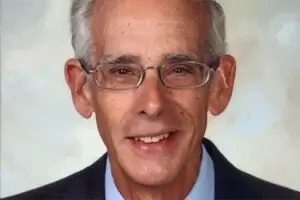
Marty Hurley
Marty Hurley Percussion instructor and music educator An East Coast native, the late Marty Hurley began his drum corps career as a member of a number of groups including the Blessed Sacrament Golden Knights and the Hawthorne Caballeros, perfecting his craft under the tutelage of legendary percussion instructor Bobby Thompson. Hurley was a proponent of traditional rudimental drumming, the method of playing based on a classic system of rhythmic patterns (rudiments) that can be combined in an infinite variety of configurations and complexities to create stunning percussion accompaniments and features. He began his tenure as a drum corps staff member with several Louisiana groups in the early 1970s including the Southern Rebels, Stardusters and the Bleu Raeders. From 1973 to 1975, he was an instructor with the Belleville Black Knights Drum and Bugle Corps. He was then hired in 1975 by DCI Hall of Fame member Dan Richardson to staff Phantom Regiment’s drum line. He would be a fixture with the Rockford corps as percussion arranger and caption manager for nearly two decades. Richardson remembers Hurley as extremely passionate about the competitive side of the drum corps activity, though he never let that get in the way of his love of teaching and interacting with both the percussionists and with members of other sections of the corps. “Marty constantly demonstrated qualities of leadership and good will to the community and took our losses in good nature. He soothed the members when we did lose and congratulated them with great gusto when we were successful. Either way, it didn’t matter to Marty, as he was there to teach the kids,” Richardson said. Hurley’s close ties to his students is a point underscored by John Wooton, a prot?©g?© of his during the 1980s as a member of the Phantom Regiment snare drum line. “Although Marty was a fierce competitor, the successes of his students are his most prized accomplishments,” said Wooton, who today serves as a professor of music and director of percussion studies at the University of Southern Mississippi. “He was an intense teacher who demanded excellence from his students. He was a man of integrity and honor.” In addition to the thousands of drum corps students Hurley taught during the summer, he spent 37 years as director of bands at Brother Martin High School, a Catholic institution in New Orleans. The same commitment to excellence that Hurley mandated on the drum corps field was the same in his classroom. According to the Louisiana Music Educators Association Journal, during his years at Brother Martin, Hurley impressively had 77 students from his beginning percussion class eventually become All-State performers. Hurley passed away in September of 2011 at the age of 65.

Scott Johnson
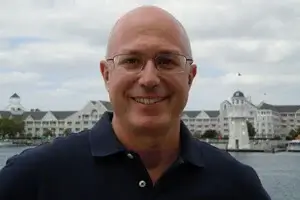
Michael Klesch
Michael Klesch Brass arranger and composer Beginning his drum corps career in the early 1980s as a woodwind player turned bass drummer with the Cadets, Michael Klesch has gone on to become one of the preeminent brass arrangers in the history of Drum Corps International. Quickly emerging as a leader within the Cadets organization, Klesch was made drum major in 1983. With a background in music education and a penchant for composing, after his performing career with the corps came to an end, Klesch was asked to join the corps’ design team in 1985, picking up where departing Hall of Fame arranger Jim Prime left off. At just 23 years old, Klesch became the Cadets’ brass caption supervisor and arranger, helping to lead the corps to its third-straight championship title. A gifted arranger and composer, Klesch has also established himself as an equally talented and effective educator, working with a number of corps after his many years with the Cadets including Phantom Regiment, Spirit, Colts, and the Crossmen, among others. “Michael is one who gets both students and just as importantly the instructional staff members to reach their highest level of performance and growth potential,” Hall of Fame member Thom Hannum said. “Some just have the knack for getting people to realize their musical capacities. Michael Klesch is one of these rare individuals. Quite simply, he elevates those around him to higher levels of achievement. Klesch’s body of work on the drum corps field is still compounding today having served as music director and arranger with Carolina Crown since 2003. He has been responsible for the music behind some of Crown’s most-loved and successful productions including “Triple Crown,” “Finis,” and “The Grass is Always Greener.” “Michael has committed himself not only to those who perform his music, but to those who listen to it,” 2004 Hall of Fame inductee Donnie VanDoren said. “In addition to performance excellence, accessibility for the audience has become priority for Michael … He has an understanding that entertaining an audience may have a lot to do with the longevity of our activity and the elevation of our art.” Beyond the drum corps activity, Klesch served as assistant band director at the University of Massachusetts from 1995-2006. He currently operates his own music arranging business, working with ensembles around the world.
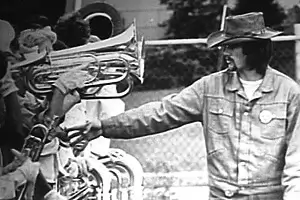
Mel Stratton
Mel Stratton Blue Devils visual instructor and designer 1970-1980 Working with the Blue Devils during the corps’ formative years, Mel Stratton is a drum corps visual pioneer that helped lay the foundation of success that the corps still stands on today. A snare drummer with the Blue Devils Drum & Bell Corps in the 1960s (the pre-cursor to the drum and bugle corps), after several years in the United States Marine Corps Stratton settled back in the Blue Devils’ hometown of Concord, Calif. Only in his 20s at the time, Stratton would become one of very first instructors with the Blue Devils when the group officially formed in 1971, bringing an insatiable creative vision for innovation and change to the drum corps activity. With the Blue Devils he would serve as a designer and overall visual instructor (then known as marching and maneuvering), in addition to the caption head for the organization’s winter and summer color guard programs. According to 2008 Hall of Fame inductee Rick Odello, Stratton became one of the most influential visual and color guard instructions in Blue Devils history by creating drills that excelled in both visual imagery and difficulty. “The Blue Devils were brought to life by the sheer force of personality, vision, drive and leadership of Mel Stratton,” Blue Devils alum and 2004 DCI Hall of Fame inductee Stephanie Lynde said. “He was fully committed to bringing about change no matter what … He was always asking the question, ‘What else is possible?’ And, ‘How can this get better than it is?’ Therein was the foundation of the Blue Devils’ philosophy and the expansive energy that continues to go beyond what we could ever imagine possible.” With his creative vision, Stratton helped pioneer the staging of corps members on the football field to emphasize musical effects, as well as the use of drill formations and other visual techniques to bring to life the emotional intensity of the accompanying music. “The visual design of the first Blue Devils championship show in 1976 was foundationally a product of Mel’s sense of visual showmanship and understanding that musicianship and the power of the brass and percussion sections should never be compromised,” former Blue Devils director and 1997 Hall of Fame inductee Mike Moxley said. Working with a staff made up of future Hall of Fame greats including Moxley, Jim Ott and Wayne Downey, Stratton would be responsible in the corps’ early years to put the group on a trajectory toward greatness. After placing 23rd in the Blue Devils’ first national tour and trip to the World Championships in 1973, just three years later the group would win its first of four Championships between 1976 and 1980. “Those of us who experienced first hand Mel’s creative talent, attention to detail and dedication to excellence, have been challenged and changed forever,” Moxley said. After his work with the Blue Devils, Stratton went on to found the California Dons Drum and Bugle Corps in 1984. He also served as director of the marching band programs for notable California schools including Clovis and James Logan High School during the 1980s. Learn more about the Drum Corps International Hall of Fame.



